Buzzing down the house: An update
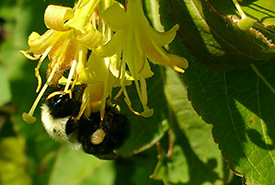
Bumble bee (Photo by Amanda Liczner)
This is an update to a post I wrote last year. The data has now been analyzed, and the results are ready for sharing. We commonly hear that bees are in decline and that we need to save them because they are important pollinators of crops and...
Enlighten yourself about species that glow
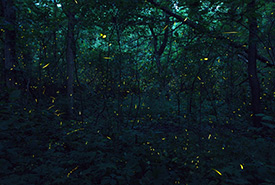
Fireflies (Photo by Zach Baranowski CC BY-NC-ND)
I had my first encounter with a “glow-in-the-dark” species when I was a child. My parents and I were visiting relatives in St. Catharines, Ontario, and we were in their backyard enjoying the warm, summer evening. In the distance, I...
Three reasons why it’s important to study winter
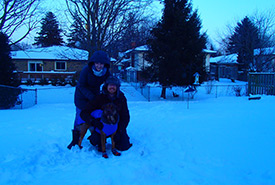
Me, my husband and dog bundled up during the polar vortex (Photo courtesy of Meghan Duell)
We tend to think of winter in temperate regions as cold, maybe snowy, maybe grey and with short daylight hours. Maybe you hate winter because you dislike feeling cold, having chapped skin, driving on icy roads and...insert weather problem here...
What ash trees and bumble bees are telling us
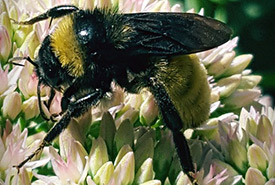
American bumble bee (Photo by K.S. Gardener/iNaturalist)
Black ash and American bumble bee are not species I thought we would ever need to save. When I started my studies in conservation over 25 years ago, bumble bees still seemed commonplace, and I thought of ash as a common tree that was great for...
Dr. Crayfish, I presume?
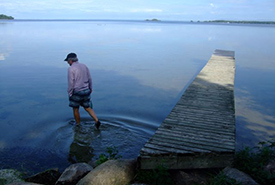
Premek Hamr, PhD (a.k.a. Dr. Crayfish) (Photo courtesy of Premek Hamr, PhD)
At the Nature Conservancy of Canada's annual Ontario Region staff meeting last May, a few of us stepped outside to wander the shoreline of Lake Simcoe and admire the sunset. As we rooted around the rocky beach, I took a few photos of plants and...
Ten good news nature conservation stories from 2018: Our collective actions can have a big impact
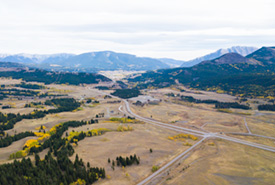
Lands within the Jim Prentice Wildlife Corridor (Photo by Brent Calver)
Around the world, we are at a crossroads in our relationship with the planet. For the first time in human history our environmental impacts are happening at a scale that is affecting all life on Earth. Our collective experience in solving big,...
Demystifying spooky species this Halloween
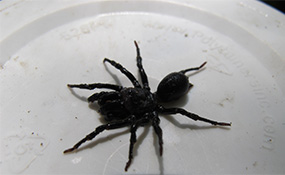
Black purse-web spider (Photo by Rob Craig, Ministry of Natural Resources and Forestry)
Why do some species spook us more than others? Some say it is an evolutionary adaptation, some say it is an irrational fear, while still others say that is because some (like spiders) are always shrouded in myths. If you’re not a fan of...
A natural misconception
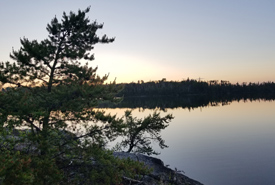
The lake near the campsite (Photo by Logan Salm/NCC staff)
The idea that nature is silent is a lie. Nature is loud, and sometimes obnoxiously so, especially when you’ve been paddling or hiking all day and just want to fall sleep. Don’t get me wrong: I’ll take the sounds of nature over...
So many species, so many ways to study them
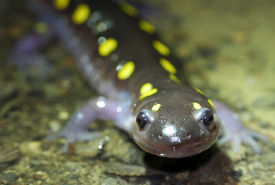
Spotted salamander (Photo by Rosemary Mosco)
I have the best job in the world. I encourage people to get excited about nature. I’m a science communicator — someone who bridges the gap between scientists, the media and the public, helping us understand each other better. One way...
Ten of nature's weirdest courtship rituals
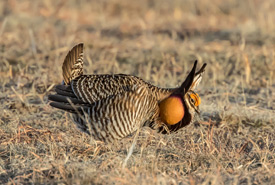
Greater prairie chicken (Photo by Ron Knight/Wikimedia Commons)
Much like humans, other animals have evolved ways of wooing or courting potential mates, whether it’s singing a love song, doing a sensual dance or giving a thoughtful gift. With love in the air this Valentine’s Day, here are 10...

